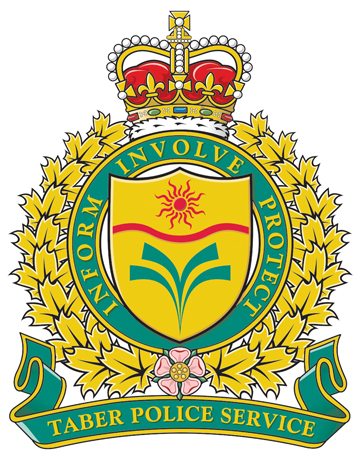Current Temperature
TPS shifting gears for impaired drivers
Posted on December 16, 2020 by Taber Times
By Trevor Busch
Taber Times
Major changes to how law enforcement approach impaired drivers in the province came into effect earlier this month, including making first-time offenders subject to an administrative penalty rather than a criminal charge. Starting Dec. 1 under the new Provincial Administrative Penalties Act, police will be able to administer stricter impaired driving penalties on the road, while most first-time impaired driving charges will be handled quicker outside of court through SafeRoads Alberta. Impaired drivers could face larger fines and lose their vehicles for up to 30 days.
“We are working hard on the complete Bill 21 amendments…that has come out in regards to impaired driving changes,” said Taber Police Service Chief Graham Abela at the Taber Municipal Police Commission’s Nov. 25 meeting. “What’s happened is, in Alberta, impaired driving is becoming an administrative offence instead of a criminal — well, it’s not instead of, at the same time as a criminal offence. So first-time impaired drivers will be dealt with administratively rather than criminally, unless there are extenuating circumstances where it should go to a criminal court.”
SafeRoads Alberta, a new adjudication branch, will allow drivers to pay their fees online, request more time to pay their penalty, or dispute their Immediate Roadside Sanction or vehicle seizure.
“For the public it’s going to be a real change in thought process,” continued Abela. “People expect impaired drivers to be charged criminally, but the government has moved towards this administrative sanction. It’s been used in other provinces already, and it’s been demonstrated to have efficacy, that it’s worked with regard to reducing impaired drivers and recidivism rates, and preventing crashes.”
Under the new impaired driving laws, significant penalties will be handed out roadside, getting impaired drivers off the streets immediately.
“It’s a good move, we support it as the Alberta Association of Chiefs of Police, but I’m sure the public will have some questions about it,” said Abela.
Stronger penalties for impaired driving include fines of up to $2,000, vehicle seizure up to 30 days, new mandatory education programs for repeat offenders, mandatory ignition interlock for repeat offenders, and new zero-tolerance consequences for novice drivers and commercial drivers will also be introduced.
“So the totality of the sanctions actually don’t change very much,” said Abela. “What changes is the fact that it doesn’t go through a court process. So it actually removes the prosecution from provincial court where you tie up judges and prosecutors and court time, to an administrative system that’s dealt with in an appeal process with adjudicators with the province and then sanctions applied against your vehicle, which is seized and held for a period of time, which is a substantial amount of money. As well as an administrative penalty and license suspensions. So the outcome is actually the same, except you would not get a criminal record.”
In the most serious cases, including repeat offenders and impaired driving causing bodily harm or death, individuals will still receive criminal charges on top of the other penalties.
“You would get an administrative sanction the first time. If you’re picked up subsequently, you get actually both: you get another administrative sanction plus the criminal violation, if you’re found guilty. Or if the offence is such that it’s causing bodily harm, or there’s extenuating circumstances to the matter, it can go criminal automatically,” said Abela.
The Alberta Transportation Safety Board will finish hearing cases submitted before Dec. 1 and is expected to wrap up operations by March 31, 2021.
“Inspector Kehler has been leading the organizational policy creation as well as the training requirements that have to go into this new law, and it’s taken up a lot of time, so I just wanted to commend him for that.”
Leave a Reply
You must be logged in to post a comment.



